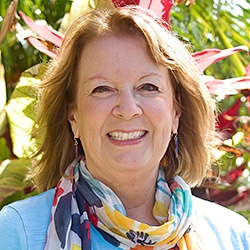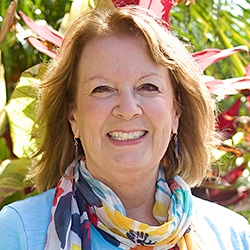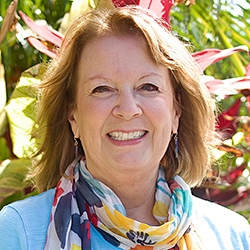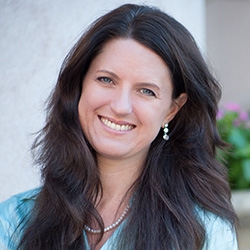

Search Results: connection
-
Trainer Tip: We all see through our own filters. To disentangle what we hear from some is really saying, check using understanding requests at the level of detail you need. Course correct along the way. In a charged situation this can be critical to bringing in clarity, being heard and resolving differences amicably.
-
Trainer Tip: People struggle to come to agreement when they don’t feel heard. So as a mediator, facilitate the process by asking all parties to reflect the essence of what's important to other parties. This is critical. Once everyone is confident that their needs have been heard, you'll notice the energy in the room relaxing. Then you can brainstorm strategies that will value everyone’s needs, and are focused on what they want to happen.
-
Trainer Tip: People’s choice of words may be difficult to hear. In fact, we may feel downright aggravated by them. Whether we enjoy these statements or not, we can begin to recognize that behind each statement is a desire to meet needs, either by saying please or thank you. In this way, we are more likely to feel compassion because we have connected to their humanness. Listen for the please or thank you in your conversations today.
-
Gain practical tools to lead from any seat, engage fear with clarity and step into everyday power.
-
Shift your mindset and learn to influence workplace culture with clarity and conscious choice.
-
Step into leadership and connection by taking full responsibility while honoring all needs.
-
- Discover what is yours to do in response to our global crises
- Weave nonviolence more deeply into how you live and lead
- Receive ongoing support in how to be effective and alive while pursuing your highest goals
- Increase your capacity to face and mourn current reality as a source of greater choice and energy
- Be a part of transforming the legacy of scarcity, separation, and powerlessness into a livable future
-
- Discover what is yours to do in response to our growing global crises
- Weave nonviolence more deeply into how you live and lead
- Receive ongoing support within and beyond the course in how to be effective and alive while doing what’s yours to do
- Increase your capacity to face and mourn current reality as a source of greater choice and energy
- Be a part of transforming the legacy of scarcity, separation, and powerlessness into a livable future
-
- Do you know what is yours to do in response to our growing global crises?
- Is nonviolence woven as deeply as you want it into how you live and lead?
- Have you ever experienced what it’s like to participate in an interdependent web of mutual support to fully embody our commitments?
- Are you familiar with how to bring yourself back again and again to aligning with purpose in every moment?
- Do you see yourself as part of transforming the legacy of scarcity, separation, and powerlessness into a livable future?
-
There's the real need. And then there's the privilege that’s offered as a substitute for it. Privilege substitutes support the existing structure of society. It can look to us as if giving up the privilege would amount to giving up everything -- if we don't believe the real needs can even be experienced. If we connected directly to the needs, we could become subversive, agents of change.
-
How can Nonviolent Communication practices support us when we're feeling depressed? Taking a look at some characteristics of depression and how they're linked to unmet needs, we offer some steps to take that help you reconnect with life and others.
-
How do you repair a relationship when you've already said things you regret, and want to reconnect with explaining or defending yourself? Listen as Miki Kashtan offers two valauble tips.
-
Given all that we are facing today as a society and a species, amongst some of the things we need is a well nourished heart. To nourish our hearts we need to discern where to wisely put our attention. Here are three practices to reclaim your attention, and replenish your reserves, so that you have the inner resources to do the work that is calling you. They are: train the mind, nourish the heart, and stay connected to purpose.
-
When someone wants to speak angrily about another, do you want to move away, try to calm them, argue, set a boundary, or offer empathy? What supports you to stay self connected? You can set boundaries regarding listening so that you're less likely to defend the other party, or attempt to talk your friend down from their judgments, thereby escalating the situation. Disagreements can also ignite curiosity and celebration. Read on for more.
-
You value generosity and you often give easily from the heart. There are those times, however, when you get snagged by a sense of obligation. You feel tense and resentful. You don't want to continue with this attitude, but how can you reconnect with the desire to give from the heart? Let’s touch on three essential elements that support giving from the heart: choice, mourning, and acceptance.
-
Here's a list of words that pose as feelings, but are actually interpretations of what you think someone is doing to you. They trigger defensiveness in another thereby preventing a connected dialogue. Behind each of these words are precious feelings and needs. This sheet includes ways to distinguish feelings from interpretations.
-
When you attempt to make a request what limiting beliefs come up? See if you recognize any from this list. Then compassionately observe your body sensations, impulses, feelings, needs, memories, energy, and images. In making the request ensure your request is connected to your needs, is doable, what you want, and not attached to them saying yes.
-
Differentiation means you can access both autonomy and intimacy in relationships. When you're unafraid to lose yourself or be controlled, you can feel deeply connected and affected, while standing strong in yourself. Differentiation also means ability to tolerate disharmony and differences, self-soothe, offer compassion, and set boundaries. Here, we'll focus on setting boundaries with monitoring eye contact and physical interaction, and interrupt our "helping".
-
The purpose of boundaries is to prevent harm to yourself and others. You decide what you are available for and what you are not. Boundaries are a clear expression of limits that keep your heart open no matter what.
-
Embrace nonviolence with courage and compassion as you learn to stand for truth in everyday life.
Quick Links

Stay in Touch!
We value your privacy, won't share your email address and you can easily unsubscribe any time.



















